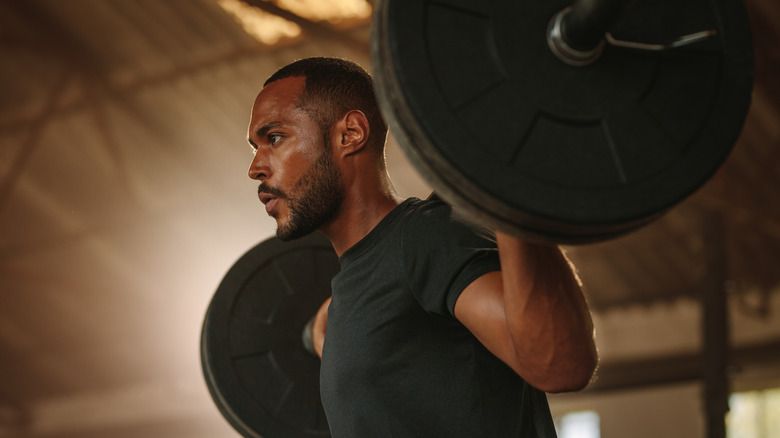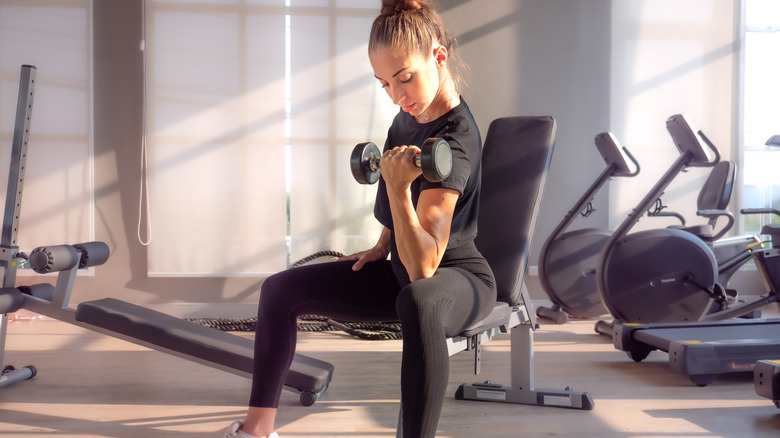Sets Vs. Reps: What's More Important For Building Muscle?
Through the years, you may have noticed an uptick in certain social media tags such as #strongissexy, which has more than 2.4 million posts, and #womenwholift, with over 3.2 million posts. There is a good reason you are seeing more people lifting weights, whether on the 'gram or in the gym, and you may even be one of them.
Strength training benefits go far beyond building muscle. Everyday Health reports that weight training makes you strong, helps maintain healthy body weight, protects bone health, increases energy, supports mental health, and helps manage chronic disease. The American Heart Association recommends strength training twice per week or more for optimal health.
Building muscle is crucial for a healthy body, and if your goal during weight lifting is to build more of it, then you may be wondering if the number of sets and repetitions (reps) really matter. The short answer is, yes. By adjusting your sets and reps, you can help increase muscle mass, or in gym slang, gains.
Heavier weights and lower reps increase gains
While any kind of strength training is beneficial, there are certain ways to tweak your workouts to support individual goals. VeryWell Fit reports that the American College of Sports Medicine recommends higher reps (10-15) per set with lighter weights to support muscle maintenance and 8-12 reps per set with moderate weights to build strength. To ramp up your muscular gains, VeryWell Fit suggests using heavy weights for three or more sets of 6 to 8 reps to fail, which, according to Self, is when the muscles you are using can no longer perform the exercise to completion.
If the goal is muscle gain and you're training at lower reps and lifting higher weights, there are some points to be aware of. Women's Health suggests that beginners not start with lifting heavy weights, as it is safer and more effective to start with bodyweight exercises or with weights that offer some resistance to condition the body. Squats, push-ups, and planks are great foundation moves, not only for newbies but for those at all fitness levels.
And don't forget to rest! "For training to failure, you want to be sure that the body parts trained get one to two days of rest between lifts," kinesiologist Dan Geraci, M.S., tells Self. Healthline adds that rest and recovery are just as important as working out, so be sure to make rest days a part of your workout routine.

